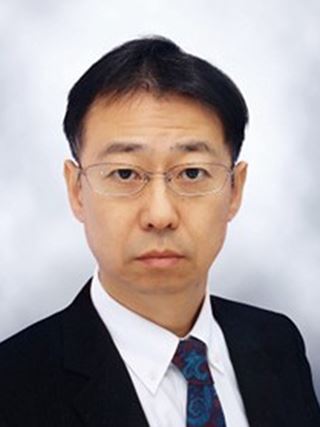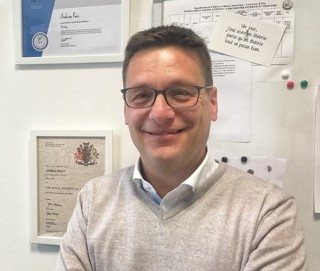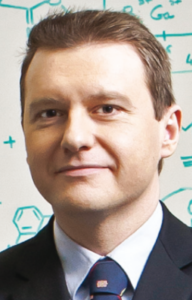We are delighted to share with you our latest collection of recently published articles focusing on Fluorine chemistry in medicinal chemistry and chemical biology, handpicked by Professor Norio Shibata.
The collection features articles published in the journal from 2018-2020 on fluorine chemistry related to medicinal chemistry and chemical biology. Organofluorine compounds are revealed in the extensive use of key materials in diverse industrial areas of pharmaceuticals, agrochemicals, speciality materials, and polymers. In particular, the high demand for organofluorine compounds on the drug market has been evidenced by the sharp increase in the number of fluoro-pharmaceuticals approved each year. Fluorine-related papers published in the journal span over various research fields, including synthetic methodology, medicinal chemistry, chemical biology, and materials science. We hope you enjoy reading these articles, reflecting the state of the art of fluorine chemistry.
As the world’s largest gold open access chemistry journal, all publications in RSC Advances are free to access.
We invite you to submit your research to this collection and give your work the global visibility it deserves.
Featured articles:
Rhenium(i) complexation–dissociation strategy for synthesising fluorine-18 labelled pyridine bidentate radiotracers
Mitchell A. Klenner, Bo Zhang, Gianluca Ciancaleoni, James K. Howard, Helen E. Maynard-Casely, Jack K. Clegg, Massimiliano Massi, Benjamin H. Fraser and Giancarlo Pascali
RSC Adv., 2020,10, 8853-8865. DOI: 10.1039/D09RA00318B
Combinatorial synthesis and biological evaluations of (E)-β-trifluoromethyl vinylsulfones as antitumor agents
Haosha Tang, Yunyan Kuang, Julan Zeng, Xiaofang Li, Wei Zhou and Yuan Lu
RSC Adv., 2019,9, 31474-31482. DOI: 10.1039/C9RA06368D
Trifluoromethylated proline analogues as efficient tools to enhance the hydrophobicity and to promote passive diffusion transport of the l-prolyl-l-leucyl glycinamide (PLG) tripeptide
Martin Oliver, Charlène Gadais, Júlia García-Pindado, Meritxell Teixidó, Nathalie Lensen, Grégory Chaume and Thierry Brigaud
RSC Adv., 2018,8, 14597-14602. DOI: 10.1039/C8RA02511H
Meet the Editor
 Norio Shibata has been a Professor at the Nagoya Institute of Technology since 2008. He received a Ph.D. (1993) in pharmaceutical sciences from Osaka University under the direction of Professor Yasuyuki Kita. He worked at Dyson Perrins Laboratory (Professor Sir Jack. E. Baldwin), Oxford University (JSPS fellow, 1994−1996), Sagami Chemical Research Institute (Dr. Shiro Terashima, 1996), after which he was a lecturer at Toyama Medical & Pharmaceutical University (1997−2003), and an associate professor at the Nagoya Institute of Technology (2003−2008). He also acted as a visiting professor at the University of Rouen (2008, 2012) and Zhejiang Normal University (2017−), an academic visitor at the University of Oxford (2017, 2018) and University of Valencia (2017, 2019), a senior technical consultant at the National Engineering Technology Center of Fluoro Materials, Juhua Group Corporation (2017−).
Norio Shibata has been a Professor at the Nagoya Institute of Technology since 2008. He received a Ph.D. (1993) in pharmaceutical sciences from Osaka University under the direction of Professor Yasuyuki Kita. He worked at Dyson Perrins Laboratory (Professor Sir Jack. E. Baldwin), Oxford University (JSPS fellow, 1994−1996), Sagami Chemical Research Institute (Dr. Shiro Terashima, 1996), after which he was a lecturer at Toyama Medical & Pharmaceutical University (1997−2003), and an associate professor at the Nagoya Institute of Technology (2003−2008). He also acted as a visiting professor at the University of Rouen (2008, 2012) and Zhejiang Normal University (2017−), an academic visitor at the University of Oxford (2017, 2018) and University of Valencia (2017, 2019), a senior technical consultant at the National Engineering Technology Center of Fluoro Materials, Juhua Group Corporation (2017−).
He has received the ‘RSC Fluorine Prize’ (2005, UK), ‘The Pharmaceutical Society of Japan Award for Divisional Scientific Promotions’ (2010, Japan), ‘Prizes for Science and Technology, The Commendation for Science and Technology by the Minister of Education, Culture, Sports, Science and Technology’ (2014, Japan), ‘CSJ Award for Creative Work in Chemical Society of Japan’ (2015, Japan), ‘Chinese Chemical Society, W.-Y. Huang Fluorine Prize’ (2015, China), ‘ACS Award for Creative Work in Fluorine Chemistry’ (2019, US) and ‘The 18th Green and Sustainable Chemistry Awards by the Minister of Education, Culture, Sports, Science and Technology’ (2019, Japan). His research interests are synthetic and medicinal fluorine chemistry.
 Submit to RSC Advances today! Check out our author guidelines for information on our article types or find out more about the advantages of publishing in a Royal Society of Chemistry journal.
Submit to RSC Advances today! Check out our author guidelines for information on our article types or find out more about the advantages of publishing in a Royal Society of Chemistry journal.
Keep up to date with our latest HOT articles, Reviews, Collections & more by following us on Twitter. You can also keep informed by signing up to our E-Alerts.












 Employed for close to 34 years at the University of Campinas (UNICAMP) in São Paulo, Brazil, Professor Meireles completed her PhD in Chemical Engineering at Iowa State University. Starting as an Assistant Professor in the School of Food Engineering in 1983, she has since become a Professor and has supervised 50 PhD dissertations, 30 MSc theses and approximately 72 undergraduate research projects. She has also coordinated scientific exchange projects between UNICAMP and European universities in France, Germany, Holland, and Spain. Angela has served as a Head of Department, as Associate Dean for Undergraduate Studies of Food Engineering and as Associated Director at the Chemical, Biological, and Agricultural Pluridisciplinary Research Center.
Employed for close to 34 years at the University of Campinas (UNICAMP) in São Paulo, Brazil, Professor Meireles completed her PhD in Chemical Engineering at Iowa State University. Starting as an Assistant Professor in the School of Food Engineering in 1983, she has since become a Professor and has supervised 50 PhD dissertations, 30 MSc theses and approximately 72 undergraduate research projects. She has also coordinated scientific exchange projects between UNICAMP and European universities in France, Germany, Holland, and Spain. Angela has served as a Head of Department, as Associate Dean for Undergraduate Studies of Food Engineering and as Associated Director at the Chemical, Biological, and Agricultural Pluridisciplinary Research Center.









 Meet the Editor
Meet the Editor


